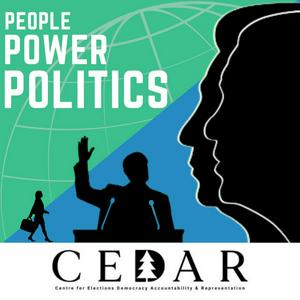The attack on democracy in the United States, and the new resistance
The attack in democracy under President Donald Trump in the United States is both broader and deeper than you think. In this timely conversation with Carl LeVan, Professor and Chair of Politics, Governance, and Economics at American University – but speaking only in his personal capacity – we hear about the way that the government has attempted to silence critical voices by intimidating a remarkably wide range of institutions from law firms to universities and on to civil society groups and the media. This new challenge has led to the emergence of fresh sites of resistance, with new alliances and coalitions being formed outside of old structures. This podcast is therefore an essential guide not only to size and scale of the threat to democracy in Africa today, but also to the shape of the fightback to come.
Guest:
A. Carl LeVan is Professor and Chair of Politics, Governance, and Economics at American University. A policy engaged researcher who has experience on both sides of the divide, Carl’s research centers on political institutions, democratization, and governance. He authored Contemporary Nigerian Politics: Competition in a Time of Transition and Terror (Cambridge 2019) and co-edited The Oxford Handbook of Nigerian Politics (2018). His work also includes Constituents before Assembly (2017) and studies on Boko Haram, East African power-sharing, and U.S. political trust. LeVan is a Research Associate at the University of Pretoria’s Centre for the Study of the United States and serves on the editorial boards of Governance and Journal of Modern African Studies. Before his PhD from UC San Diego, he advised Nigeria’s National Assembly and worked in the U.S. Congress, giving him distinctive insights into the most important political struggles of our time.
Presenter:
Dr Nic Cheeseman is the Professor of Democracy and International Development at the University of Birmingham and Founding Director of CEDAR.
The People, Power, Politics podcast brings you the latest insights into the factors that are shaping and re-shaping our political world. It is brought to you by the Centre for Elections, Democracy, Accountability and Representation (CEDAR) based at the University of Birmingham, United Kingdom. Join us to better understand the factors that promote and undermine democratic government around the world and follow us on Twitter at @CEDAR_Bham!


